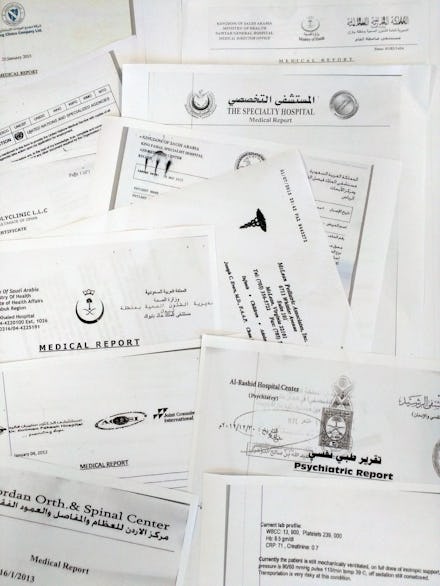WikiLeaks has been releasing the names of rape survivors, civilian medical records

In the process of releasing data on public and government figures, WikiLeaks has exposed hundreds of regular citizens, including rape survivors, sick children and the mentally ill, the Associated Press reported Tuesday.
WikiLeaks, a nonprofit news outlet run by Julian Assange, who has sought asylum from Ecuador to avoid extradition to Sweden to face rape allegations, has a reputation for exposing government secrets, including unpublished military operations, intelligence gathering efforts and corruption. But the AP says WikiLeaks has often failed to appropriately handle the information of private citizens in its take-no-prisoners approach.
"They published everything: my phone, address, name, details," an unnamed Saudi man told the AP, whose paternity dispute with his former partner had been published by the website. "If the family of my wife saw this. ... Publishing personal stuff like that could destroy people."
In the last year, the outlet has published a series of at least 124 medical files belonging to and identifying "scores" of ordinary people, according to the AP. In two cases, the outlet named teen rape survivors. Another published the information of a Saudi Arabian citizen who was arrested for being gay, which is punishable by death under Saudi law.
In July, WikiLeaks released thousands of emails from the Democratic National Committee containing embarrassing information — the same month WikiLeaks released thousands of emails allegedly from members of Turkey's AKP party. The fact that this has happened so frequently dilutes Assange's vow to keep ordinary people out of the spotlight.
"We have a harm minimization policy," Assange said in July 2010, according to the AP. "There are legitimate secrets. Your records with your doctor, that's a legitimate secret."
WikiLeaks responded to the debacle via Twitter, calling the whole thing "ridiculous" and a "re-run" of a 2015 AP report, and noting that the Saudi government already possessed all the sensitive information.
But while a government possessing personal civilian information may be precarious from a legal angle, the social and personal leaks still hold great potential to ruin lives. One instance revealed a partially disabled woman, who'd gone into debt to take care of a sick relative.
"This is a disaster," the woman told the AP. "What if my brothers, neighbors, people I know or even don't know have seen it? What is the use of publishing my story?"